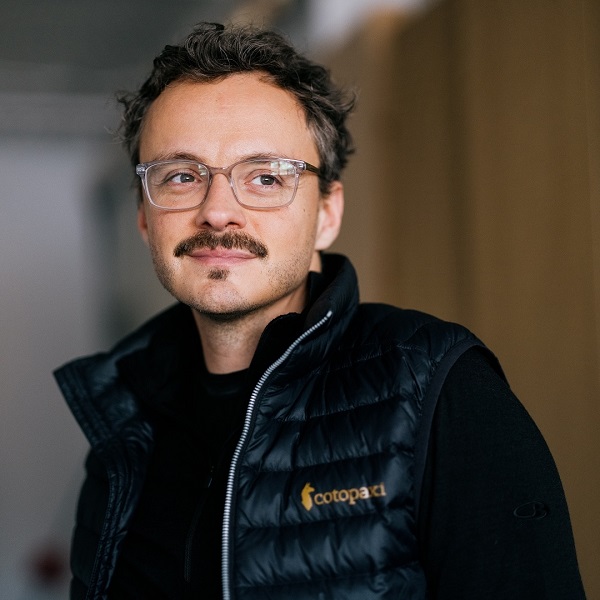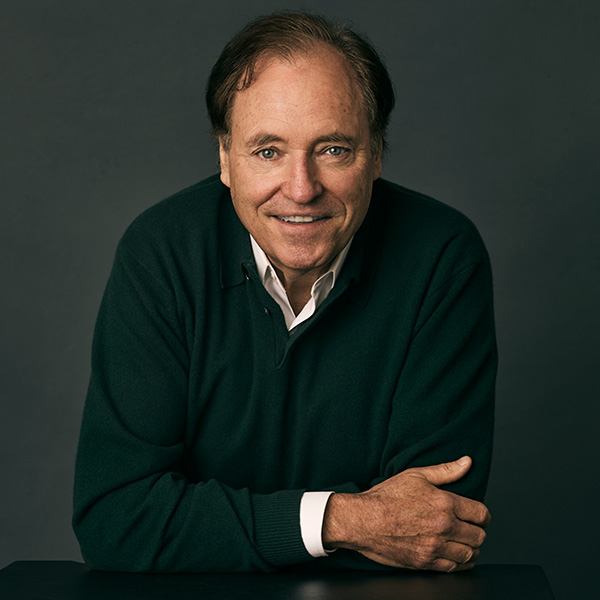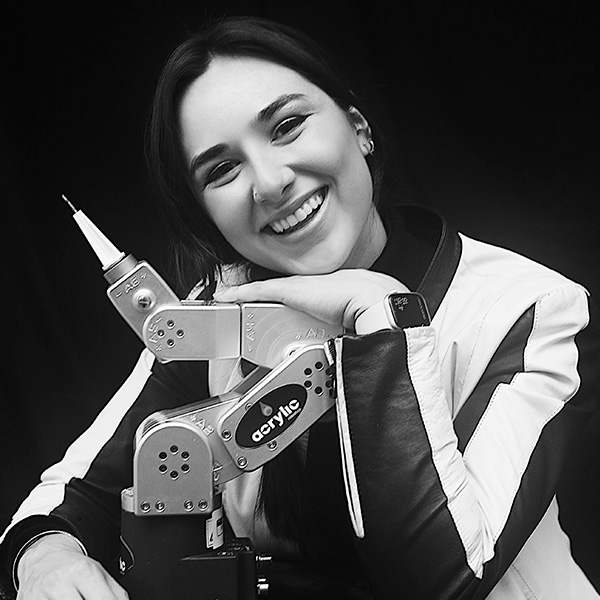Justin Raymond, BEd’94, has been thinking about solving transportation problems for quite a while now. It is a bit of an obsession for him. Every few years, it results in him creating a new company.
His latest, Flexday, was launched just over two years ago. The Toronto-based start-up offers its 10,000 members a network of temporary co-working spaces in underutilized restaurants, cafes, hotels, microbreweries, distilleries, and even high-fashion Ollie Quinn eyewear stores. Flexday currently offers more than 60 locations throughout the city.
While Flexday might appear to be a WeWork-type real estate play, Raymond conceived his start-up as a fresh, tech-empowered solution to the urban problem of the soul-deadening commute. “The commute is the world’s biggest transportation problem,” says Raymond. “It rips families apart, causes stress, steals time and is full of frustration. It also clogs up city highways and causes environmental issues.”
Raymond’s answer with Flexday lies in offering workspace proximity, supported by affordability, functionality, and choice: “Having highly functional neighourhood spaces, just around the corner, where people can work closer to home, is our solution to eliminate the unnecessary commute.”
Through the Flexday app, members can access an eclectic menu of productive workspaces, where and when they need it, paying $49 a month for seven days (or $95 for unlimited days). It shows members locations close to home and across the network. They can select a preferred location and get an entry pass to walk into a restaurant, hotel, retail store, or traditional office co-working space with a guaranteed seat, secure enterprise-grade WiFi, and perks such as free Detour specialty coffee.
Unlike WeWork and other co-working office space companies, which spend heavily on buying or leasing workspace, Flexday partners with venues that provide underused space at no cost because it helps them to generate a new source of revenue and customers. “We’re digitizing access to real estate,” says Raymond. “We don’t own office buildings, have leases or pay expensive overhead.”
One thing that Raymond hadn’t counted on as he developed his company was COVID-19. The pandemic has thrown a very large monkey wrench into the operations of virtually every business in the country — including his. For all the problems it has created for Flexday and its partners, Raymond wonders if the coronavirus might also result in a major shift in how companies and their staff think about the workplace.
“One of the things we have seen [as a result of social distancing measures] is this tremendous growth in virtual workplaces. We have this new understanding of how people can connect remotely and they don’t necessarily have to be in the same location as their manager in order to accomplish a great deal.” Raymond suspects that there are many workers who might not be so keen about returning to the daily grind of long commutes. He also believes that more companies will be open to offering their staff greater flexibility about where they choose to work from.
In fact, says Raymond, things were already trending that way before COVID-19 came along. While Flexday appeals to gig economy freelancers, many of its customers have steady corporate jobs. According to a recent international study, about half of those individuals now work remotely for part of the week.
Flexday is Raymond’s most recent turnkey tech and transportation-related venture. In 1998, he launched Taxiguy Inc., a simple, action-based tool that made it easy for people to take a cab home after having drinks in a bar or restaurant. They could call a toll-free number (1-800-TAXIGUY) from anywhere in Canada, linking them directly to a local taxi company.
“I entertained people often in my job and was troubled by the lack of an easy option to get them home safely,” recalls Raymond, who developed the idea as a side hustle before leaving his sports marketing agency position.
He persuaded Molson to sponsor and promote the initiative, which the brewer embraced as part of its “don’t drink and drive” marketing message for the past two decades. Raymond still owns the profitable Taxiguy, which Molson offers as a smartphone app today. “We’ve done about five million safe rides home,” says Raymond, who got an early taste of leadership, teamwork and entrepreneurial adventure as an athlete at McGill.
As a McGill student, he quarterbacked the University’s football team (he was McGill’s football MVP in 1993). “Quarterback is a thinking position, [it’s] about being a leader and making sure team performance comes first,” Raymond says. While studying at McGill, he also launched a side business with two other students selling hats to sports teams on campus and at other universities. “We had lots of fun, with a little profit,” he recalls.
In 2000, Raymond co-founded CellWand, a software solution that allowed people calling a cab to avoid getting a busy signal and reach the first available dispatcher by pressing #taxi on their cellphone. He sold his equity stake to a wireless carrier and started Carbon Accounting in 2007, a software system that handles environmental sustainability measurement and reporting for almost 5,000 clients across 70 countries. His first customers were big transportation and hotel companies.
In 2012, Raymond was hired by Hailo, the British cab-hailing app, as Canadian president to debut its service in Toronto and then became North American president. Unlike Uber or Lyft, Hailo used fully licensed drivers in licensed taxis or limos.
Raymond built a viable business in Toronto with 85,000 customers, 3,000 drivers and $10 million in revenue. But the U.S. was a different story. Hailo fared poorly in American cities, where it had trouble recruiting large, reliable stables of drivers against fierce Uber competition.
The company pulled out of North America in late 2014 to concentrate on Europe. “We built a beautiful business in Toronto going head-to-head with Uber, but other markets were different. Every time Hailo would raise capital, Uber would raise 10 to 20 times more,” Raymond says.
He couldn’t persuade Hailo executives to adapt its traditional licensed-driver model to compete with Uber’s category-busting, peer-to-peer driver model south of the border: “I treated Hailo like my own company and that was a mistake. I thought I was my own boss, but I didn’t control the decisions.”
He’s back in the driver’s seat with Flexday, free to nimbly adapt and experiment.
“The longer we stay in the Toronto market to experiment with what works well and what doesn’t, the more the marketplace of users and suppliers evolves and grows,” says Raymond.
He sees an opportunity for Flexday to expand globally. “I know from my other ventures that it takes time to build a great business. I want to build a product that can scale quickly and when it’s ready to expand no one can stop it. In three to five years, I’d like Flexday to be in multiple cities, with hundreds of thousands of members.”


